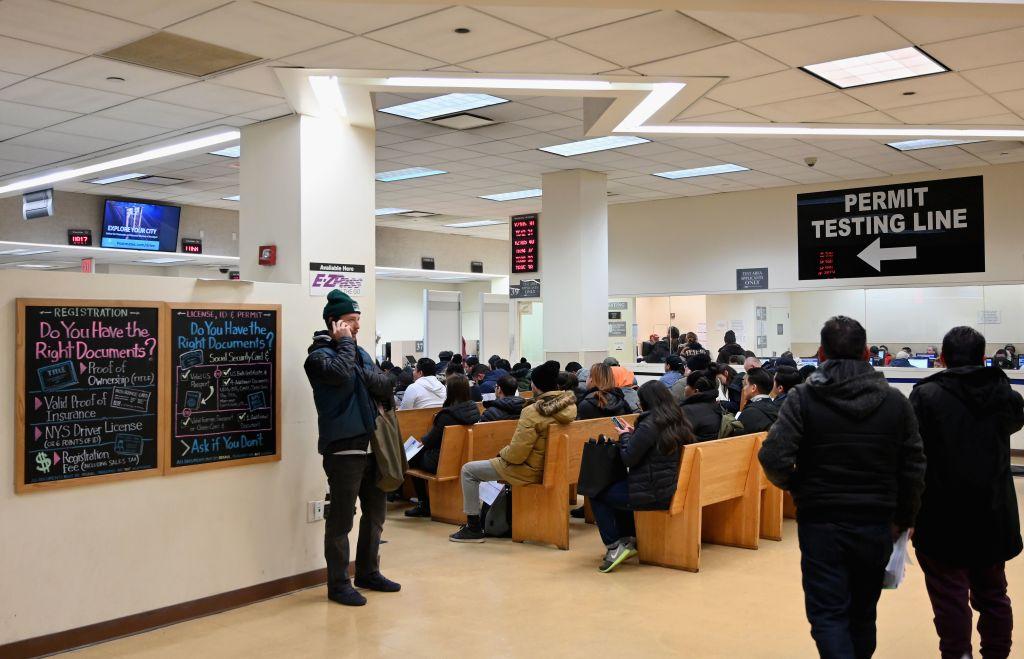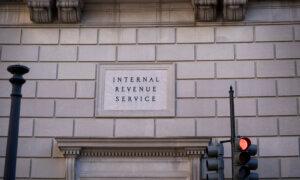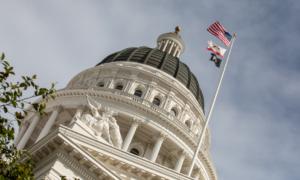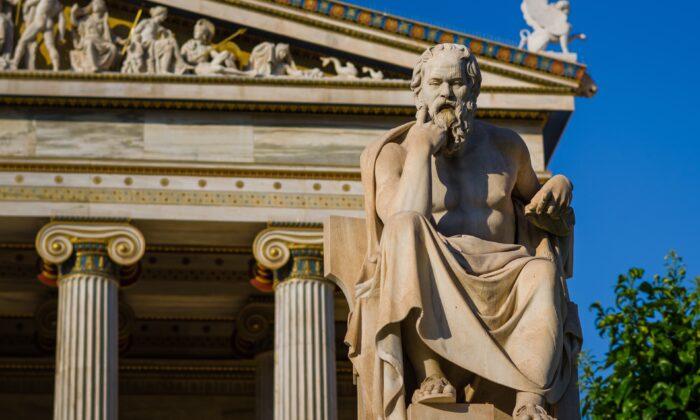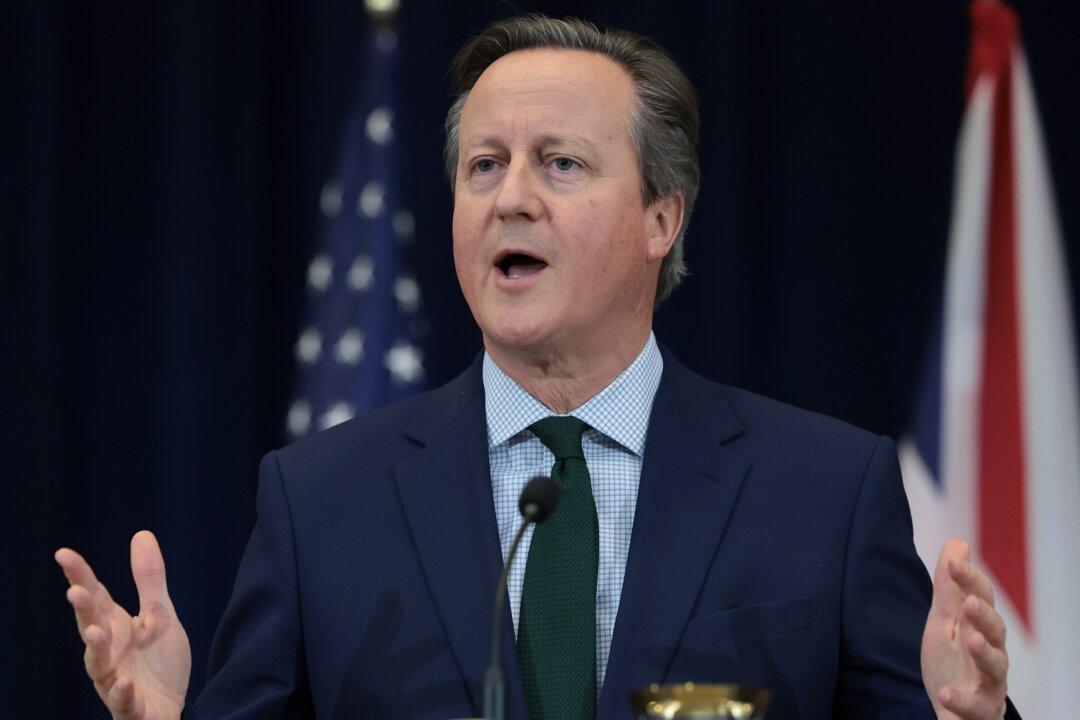I suppose that nearly every adult (I’ll come back to that “nearly”) has his own DMV story.
The endless lines, the surly clerks, the insufferable atmosphere of bureaucratic imperiousness.
My latest encounter with the DMV occurred some time ago when I had to renew my driver’s license.
I looked up our local emporium on the internet and read that Tuesday and Friday mornings tended to be the least busy times.
Hot dog: It was Friday morning right then!
The elaborate communication I received in the mail from the DMV worried me a little.
No longer was renewing your license simply, you know, renewing your license: handing in the one about to expire and getting a new one.
That’s so yesterday.
Now, because of “new federal guidelines,” you had a choice.
You could opt for a “regular renewal,” which was like renewals of yore, except that your license wouldn’t count as a form of identification for such things as domestic flights.
Or you could opt for a “verified renewal,” in which case it would serve as a form of official identification.
“I’ll take one ‘verified,’ straight-up, please.”
Not so fast.
The process of verification is a process indeed.
You needed a passport or some other certifiable form of identification.
You needed two pieces of mail addressed to you at your home address, and such addresses had to be computer generated, i.e., not handwritten or typed.
You also needed—pay attention now—your Social Security card.
Failing that, I later discovered, a copy of your W2 or a 1099 IRS form would do.
You know the old adage, “Haste makes waste.”
Guess what. It’s true.
I scurried down to the DMV on the appointed morning.
I had my current license.
I had my passport.
I had two utility bills addressed to me.
I did not have my Social Security card (do you?), nor, cutting to the chase, did I have a copy of my W2 or any 1099 forms.
In my haste, I skimmed right over that requirement.
I would have thought that a current license, a passport, and two pieces of mail addressed to me would go pretty far in “verifying” that the R. Kimball in front of you was, in fact, the R. Kimball he said he was.
You can see how this ends.
This being Friday morning, a light-traffic day at the DMV, I stood in the information line for only about one hour.
Everybody has to stand in the information line.
It’s there, I think, just to soften you up.
When you get to the front, a bureaucrat asks you what you want and then gives you a number.
This number entitles you to move to another part of the room and sit down to wait for a different bureaucrat who will actually act on your request.
That was another hour.
So: two hours on a lovely, sun-filled morning.
When my number was finally called, I zipped up to the window, smiled, and asked for one renewed license, verified, hold the olives.
Ha ha ha.
It’s often been noted that petty bureaucrats—and none is pettier than the bureaucrats at government agencies such as the DMV—delight in adding some little quota to the woe and inconvenience of their victims, er, their clients.
This is true, as my experience reminded me.
I cannot express the subtle gleam that came into the eye of the female who got me for a plaything when she learned that I wanted a verified license but lacked the requisite paraphernalia.
Mostly, it is true, I was mesmerized by her fingernails—I say “her” fingernails, but these inch-and-a-half talons cannot really have been hers.
No human being could have generated such claw-like extrusions on her own.
Each boasted an elaborate, colorful paint job of unspeakable hideousness, and no one was quite like another.
I wondered whether she moonlighted as a hypnotist, for I noted that she kept those glittering prostheses in constant, attention-grabbing motion.
Still, captivated though I was, I also noted the glint in her eye, the thin smile of satisfaction that suddenly registered like a sine wave across her countenance when she discovered she was going to be able to disappoint me.
This was my choice: (1) go home, scrounge up the rest of the required certification, come back for another two- or three-hour (or four- or five-hour) stint at the DMV or (2) be content with a “regular” license, i.e., one that entitled you to turn the key in your car but was otherwise worthless.
I played the theme from “Jeopardy!” in my head for a moment.
I’d just spent two hours in two separate holding areas on a glorious morning.
I took the “regular” license.
OK. “Go over where it says ‘camera.’”
A short wait.
Another female barked out, “Roger” (whatever happened to “Mr. Kimball”?).
I trudged up to the window.
“Receipt!” snapped the preoccupied functionary, otherwise ignoring me.
I handed it over. She gave it a suspicious look and then ordered me to stand by an adjacent curtain. “Chin down,” she said, snapping my picture. “Wait over there.”
A few minutes later, I was called over and handed my new license, a snazzy-looking piece of plastic emblazoned with the legend NOT FOR FEDERAL IDENTIFICATION.
Thanks for that.
A couple of points.
I can think of plenty of people who are going to have trouble coming up with the requisite slate of verification when it comes time to renew their driver’s licenses.
So how about the stay-at-home mom who doesn’t have her Social Security card and also doesn’t have a W2 or 1009 form? What then?
Another thing.
While I was frittering away that summer morning at the DMV, I wondered about all those important people in Washington whom our tax dollars support.
Do you suppose that Joe or Jill—er, Dr. Jill—Biden stands in line to get his or her license renewed?
How about your congressman or senator?
How about other members of the nomenklatura that run the country, that is, that run your life (which is not quite the same thing as running the country)?
Do you suppose that a Supreme Court justice, say, or a cabinet member, or a senior aide to any member of the political elite, waits in line for hours and then finds that he or she is insufficiently credentialed to deserve a “verified” license?
The question answers itself and qualifies that “nearly” with which I began.
More and more, alas, this country is dividing into two groups: us, a horde of lumpen worker-bees (many of whom, of course, do not actually work), and them, a political elite who live by very different rules.
They do not wait in line at the DMV any more than they are subject to the usual rules that the SEC applies to insider trading.
They make the laws.
They are not subject to them—not, anyway, in the same way the rest of us are.
You might have been surprised by the word “decadence” in the title of this column.
Most people, I think, can see how the DMV is an allegory for unpleasant, not to say insane and Kafkaesque, bureaucratization.
But decadence?
A society is decadent when the forms of its institutions survive but the substance or purpose of those institutions has been perverted, hollowed out.
The United States still has many of the forms of representative democracy, of that republican form of government that Benjamin Franklin paid homage to in his famous “if-you-can-keep-it” comment.
But how many of those institutions are but pale shadows of their former selves?
My little trip to the DMV may strike you as about as important as life was to Macbeth at the end of his tomorrow and tomorrow and tomorrow speech.
What, after all, does it signify?
“So you spent more than two hours in line at the DMV. So what? You didn’t get the license you wanted because you didn’t have the forms required to get it. Big deal.”
In fact, I think it is a big deal, biggish, anyway.
Just now, the public is exercised, and rightly, by the cataract of revelations about the NSA and the FBI hoovering up information about ordinary citizens.
Every day, it seems, there are new stories about the IRS’s targeting individuals or groups whose beliefs depart from the “woke” Democrat gospel of government unlimited.
It wasn’t so long ago that we saw in the movies minatory bureaucrats barking out the demand “Papers, please!”
They were the bad guys.
They lived in squalid totalitarian societies where the government ran everything.
We in the United States were different. Land of the free, home of the brave.
Now those bureaucrats yelling “Papers, please!” are our guys.
“Communism,” said Lenin, who knew about these things, “means keeping track of everything.”
How he would have envied our databases and supercomputers, our face-recognition technology and DNA testing!
A society in which surveillance is universal, in which every move is tracked and docketed, is a society in which everyone may be guilty and certainly is a suspect.
Black boxes in your car that track where you’ve been and how fast you drove to get there; cameras in taxi cabs that snap your picture every time you take a ride; drones aloft that the FBI uses to keep an eye on us; to say nothing of the phones in our pockets that tabulate not only where we go but also those we communicate with and what videos we watch.
Where does it end?
